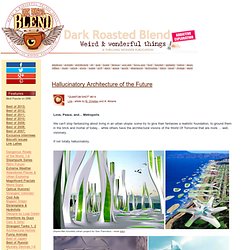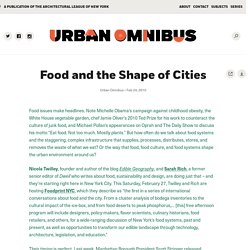

For richer, for poorer « Prospect Magazine. Forget aid—people in the poorest countries like Haiti need new cities with different rules.

And developed countries should be the ones that build them Lacking electricity at home, students work under the dim lights of a parking lot at G’bessi Airport in Conakry, Guinea On the first day of TEDGlobal, a conference for technology enthusiasts in Oxford in July 2009, a surprise guest was unveiled: Gordon Brown. He began his presentation with a striking photograph of a vulture watching over a starving Sudanese girl. The internet, he said, meant such shocking images circulated quickly around the world, helping to mobilise a new global community of aid donors. When disaster strikes—as in the recent Haiti earthquake—the prime minister is right. So, two days later, I opened my own TED talk with a different photo, one of African students doing their homework at night under streetlights. The deeper problem, widely recognised but seldom addressed, is how to free people from bad rules. Hallucinatory Architecture of the Future. "QUANTUM SHOT" #614Link - article by M.

Christian and A. Abrams Love, Peace, and... Metropolis We can't stop fantasizing about living in an urban utopia: some try to give their fantasies a realistic foundation, to ground them in the brick and mortar of today... while others have the architectural visions of the World Of Tomorrow that are more ... well, visionary. If not totally hallucinatory. (Hydro-Net futuristic urban project for San Francisco - more info) (futuristic medical center - more info; and MAD architects concepts, like this one) Some examples of the early pulp illustration (still unmatched in their retro-futuristic grandeur) - New York in 2032: (fragment of the cover of the "Science & Mechanics" magazine, 1931) Sliding pavements - and the Depth-scraper!
(images via) The future city by Francisco Mujica: an utilitarian "nightmare": (image via) Even worse, a soul-deadening "Cube City" (1930) - Burj Dubai (or Burj Khalifa) inspiration: the Mile High Illinois (images via 1, 2) (images via) ... Mozilla Firefox. The Institute for Science, Innovation and Society (InSIS) has announced the first six projects that will receive funding under the Oxford Programme for the Future of Cities . The programme, led by InSIS director Professor Steve Rayner , seeks to deliver scientifically robust, cutting-edge research into the social, technological and climatic changes cities will face over the next fifty years, and how cities can be made more flexible to meet these challenges. In particular, the programme will look at the implications this has for decision-making in boardrooms, communities, and city and national governments, in the next 5-10 years and beyond.
Following a call for proposals across the University of Oxford and Oxford Brookes University, the successful projects draw on expertise in the areas of: ageing, migration, globalisation, governance, urban reconstruction, transportation and the built environment. The funded projects are: 1. 2. Food and the Shape of Cities. Food issues make headlines.

Note Michelle Obama’s campaign against childhood obesity, the White House vegetable garden, chef Jamie Oliver’s 2010 Ted Prize for his work to counteract the culture of junk food, and Michael Pollan’s appearances on Oprah and The Daily Show to discuss his motto “Eat food. Not too much. Mostly plants.” But how often do we talk about food systems and the staggering, complex infrastructure that supplies, processes, distributes, stores, and removes the waste of what we eat?
Or the way that food, food culture, and food systems shape the urban environment around us? Nicola Twilley, founder and author of the blog Edible Geography, and Sarah Rich, a former senior editor of Dwell who writes about food, sustainability and design, are doing just that – and they’re starting right here in New York City. Their timing is perfect.